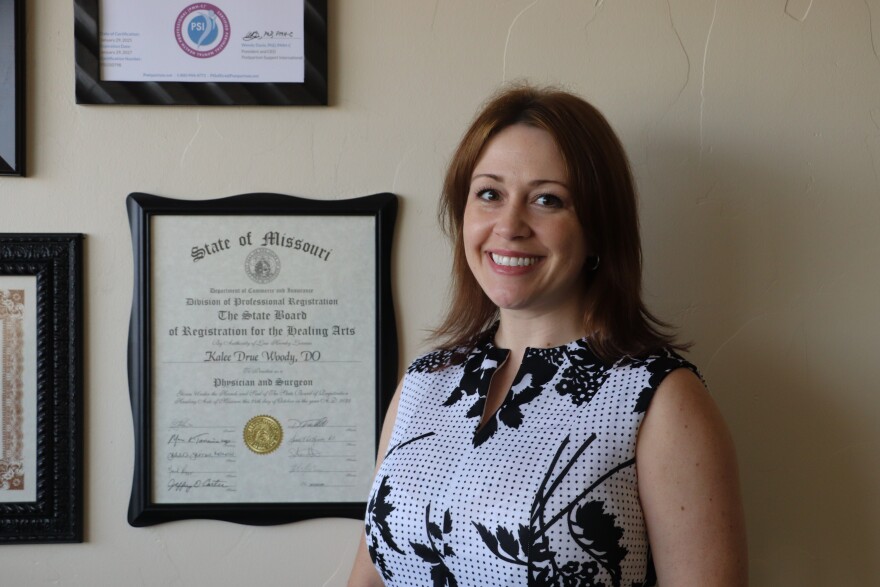From her post at a new perinatal behavioral health care clinic opening at Mercy in Oklahoma City, Dr. Kalee Woody will exclusively serve pregnant and postpartum mothers, and people who are planning for pregnancy. She moved to the state for the job and said she is ready to be an advocate for a population facing unique mental health needs.
While she completed her residency at the University of Missouri in Columbia, Woody worked in a women's mental health clinic dedicated to pregnancy and postpartum care. She has a long list of patients who've made an impact on her practice, but one stands out.
A woman who just delivered her first baby started experiencing hallucinations and disorganized thinking after she had a C-section. Woody said the patient was struggling to be in touch with reality, and she was diagnosed with postpartum psychosis.
But at the clinic, Woody determined what the woman was experiencing was a result of past sexual trauma, newly brought to the surface by childbirth. Treatment for trauma looks completely different than treatment for psychosis, Woody said.
"Instead of her being misdiagnosed and staying on a medication that she didn't need to stay on, we were able to figure it out and get her the right treatment," she said.
Woody said new parents put a lot of pressure on themselves to be happy and can end up feeling guilty when they aren't. She also said many of her patients feel full responsibility for everything that happens during their term or childbirth, even though complications are often not within their control.
All of this, she said, makes access to compassionate mental health care even more important.
"Women have always been labeled as crazy, right?" Woody said. "And now we're able to say there is a biologic[al] basis for this. It is not made up. It is not a personality trait. There's a reason why."
Hormonal changes brought on by pregnancy can make the brain more vulnerable to depression, anxiety or the recurrence of existing conditions.
According to the U.S. Centers for Disease Control, maternal mental health conditions are the leading cause of pregnancy-related death. The Policy Center for Maternal Mental Health reports perinatal mental health disorders affect 800,000 families in the United States every year, disproportionately impacting mothers and people of color.
Woody said expecting and early parents deserve agency, and her job is to help them make the best decision for themselves, not force them into a corner. One way she guides that process is through what she calls "risk versus risk conversations."
"I'm here to educate. I'm here to let you know what the studies say and what's out there, what we know," she said. "But the choice is ultimately hers."
For example, Woody said people often struggle to decide whether to stop their mental health medications when they get pregnant.
"So we talk about the risks of untreated mental illness versus the risks of the medication," she said.
Woody said patients are often surprised to learn that cutting out a medication isn't always the right answer. She said untreated mental illness can cause preterm births, low birth weights, pre-eclampsia and increase someone's risk for a miscarriage. Poor mental health might affect sleep or appetite, or cause someone to self-medicate with potentially harmful substances.
"People don't realize that taking time for yourself impacts the way that your child and your family dynamic develops," she said. "So it's best to, you know, make a little time for yourself, put yourself first."
Woody said she's excited to work with all pregnant people and to help support often overlooked populations. She emphasized that mental health concerns are normal and common, and that women shouldn't have to feel alone in what they are going through.
"I don't see what the mom is going through as a character flaw," she said. "She needs someone to stand by her side and help her through that, rather than putting judgment or blame on [her], especially when it comes to mental illness and substance use."
This report was produced by the Oklahoma Public Media Exchange, a collaboration of public media organizations. Help support collaborative journalism by donating at the link at the top of this webpage.






